“Organic Beauty Recipes By Eve – The Complete Guide To DIY Natural Beauty” is my long-awaited book, with a treasure trove of effective and easy to follow recipes with 100% natural ingredients.
You can order the ebook now on amazon for only $4.99 or get the paperback edition for $19.99 (USD).
I also launched my own small business offering all-natural raw shea Butter! Every time you purchase my Shea butter, you are supporting the Ghana women coop which employs 95 women and buys shea nuts from more than 5,000 women in 44 communities.
Lastly, check out my favorite shopping lists on Amazon . I will receive a small commission from the affiliate program Amazon if you order something and this is at no additional cost to you.
Thank you for your support!
It’s about time I share my DIY charcoal face mask! It’s easy to make and does an excellent job of deeply purifying your skin, leaving it cleansed and healthy. I’ve used all-natural ingredients: kaolin clay, jojoba oil, vegetable glycerin, rose hydrosol, lavender, tea tree, and rose geranium essential oils and of course activated charcoal!
This recipe is a copycat of the popular Origins ‘Clear Improvement Active Charcoal Mask’. This recipe has all its goodness, except it’s better, Ha! It comes without the addition of any chemicals or preservatives. And also, let’s not forget, it does not include the heavy price tag!
My homemade DIY face charcoal mask has a beautiful blue anthracite color and your skin will love it!
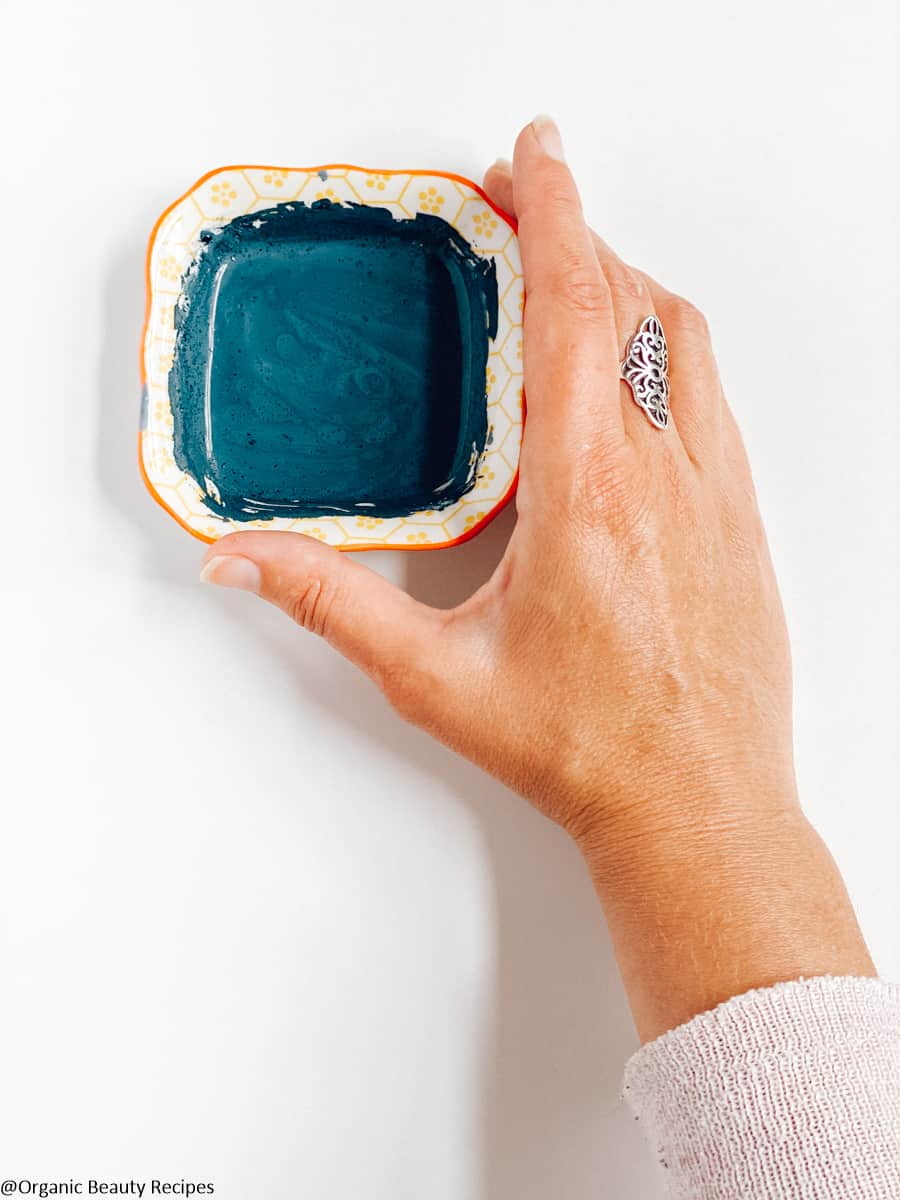
What are the benefits of charcoal for the skin?
Charcoal has increasingly gained popularity in the skincare industry because of its amazing results. Many facial products have started including activated charcoal as the main ingredient.
To put it in easy terms, charcoal acts as a magnet for impurities. Our skin traps pollutants such as bacteria, toxins, dead cells that cause it to look dull. Charcoal molecules pull these impurities to the surface and sweep them off the skin. It also regulates excess oil, unclogs pores, allowing your skin to breathe, feel healthy and rejuvenated.
How to choose charcoal for your face mask?
Make sure it is food grade, 100% natural activated charcoal. The source can be from hardwood, coconut or bamboo.
Which type of skin is the Homemade Charcoal Face Mask recommended for?
This DIY mask is for our troops struggling with a difficult-to-please skin type – oily, acne-prone skin. However, it can also do wonders on normal skin. If you have dry skin, I’ve added glycerin that will help keep your skin hydrated.
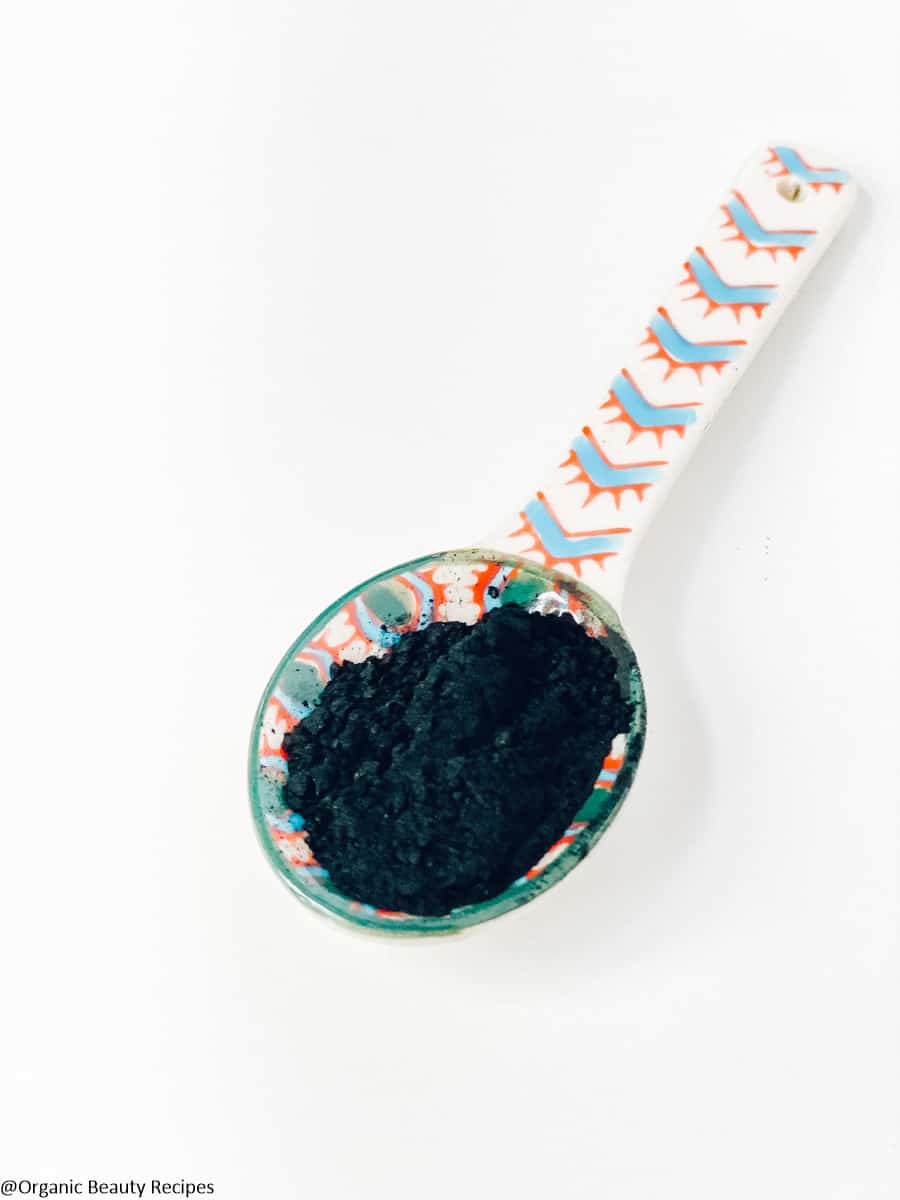
How to make the DIY charcoal face mask?
It’s a simple recipe, requiring you to mix a few ingredients together. The ingredients required for this mask are readily available online.
DIY charcoal face mask Ingredients
- Kaolin clay: It has a neutral pH, making it gentle enough to cleanse and purify your skin without over-drying it.
- Activated charcoal: The star of the show! Rids the skin of impurities and unclogs pores, reducing the chance of acne occurrence.
- Jojoba oil: Jojoba oil is closest to the oil naturally produced by the skin, known as sebum. As a result, applying it signals the skin to not produce excess sebum, which could result in acne and greasy skin. It also acts as a soothing agent with anti-inflammatory properties, rich nutrients and antioxidants
- Vegetable Glycerin: Oil-free and non-comedogenic in nature, it ensures that it deeply hydrates the skin without clogging the pores.
- Lavender essential oil: Generally very soothing and pleasing to the skin!
- Tea tree essential oil: This is actually one of the best essential oils for acne. Its antiseptic properties help kill bacteria, and it is also great for acne spot treatment, as it dries out the pimples.
- Rose geranium essential oil: It balances sebum production, evens skin tone, promotes cell regeneration and also helps remove dead skin cells, which could cause acne.
- Rose hydrosol: Also known as rose flower water, rose hydrosol is rich in Vitamin C and phenolics, making it a natural anti-inflammatory agent.
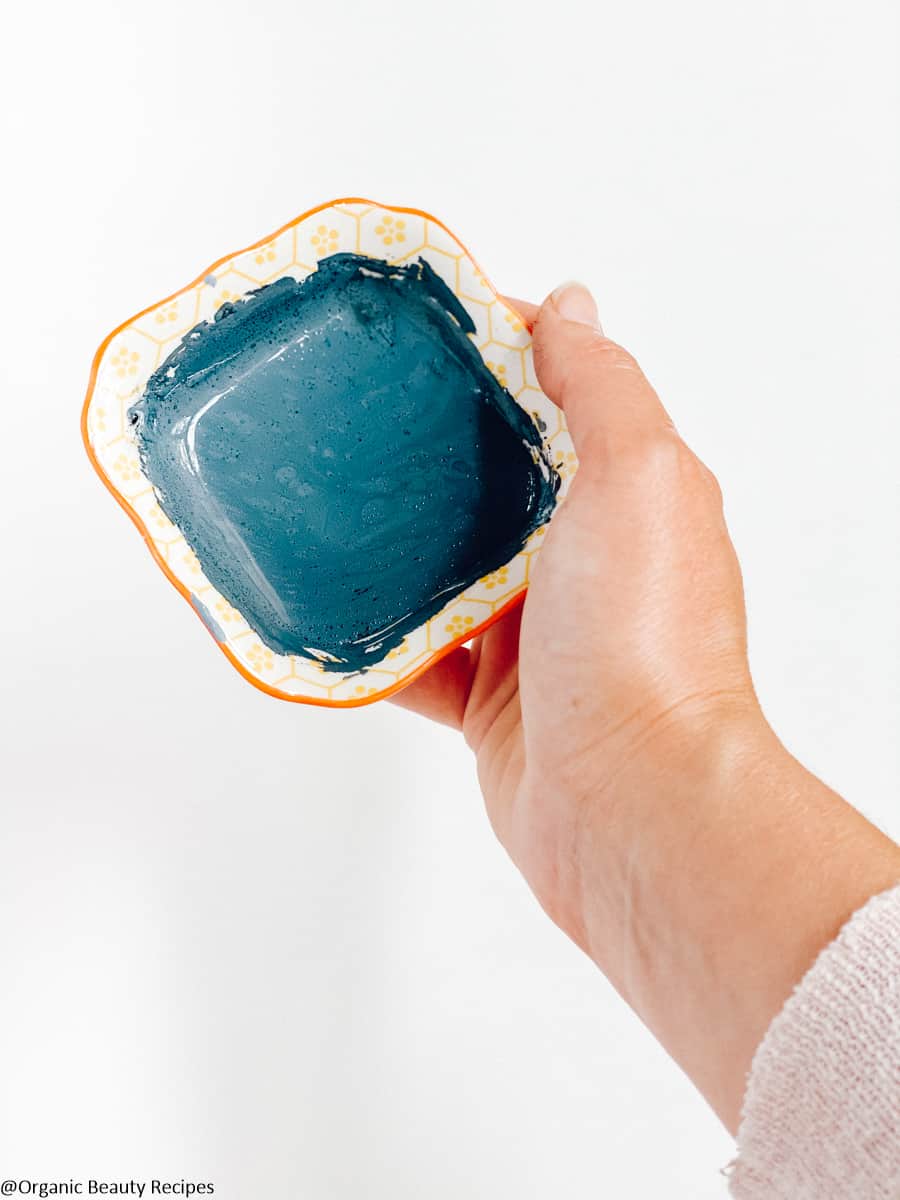
Ingredients
- 6 teaspoons white kaolin clay
- 2 teaspoons activated charcoal powder
- 2 teaspoons rose flower water rose hydrosol
- 2 drops vegetable glycerin OPTIONAL
- 1/4 teaspoon Jojoba oil OPTIONAL
- 1 drop Lavender essential oil OPTIONAL
- 1 drop Tea tree essential oil OPTIONAL
Instructions
- Combine all ingredients together until it forms a liquid paste.
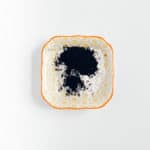
- Apply as an acne spot treatment for 15 minutes or on all your face (avoiding the eye and mouth area) for 5 minutes.
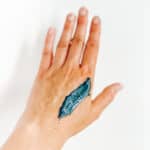
- Remove the homemade charcoal face mask with a warm wet cloth with a few drops of gentle soap (Castille soap) and massage your skin gently while doing so. Rinse your face gently with warm water and then finish with cold water to close your pores.
- Moisturize with rosehip oil or jojoba oil.
- Repeat once or twice a week.
- This clay mask recipe makes one application and can help clean the skin and reduce acne inflammation and redness.
Does charcoal work for acne spot treatment?
Yes! Acne occurs due to the accumulation of excess sebum, bacteria and dirt in your pores. Charcoal works as a great skin-clarifying agent to deep cleanse your skin from impurities, unclog pores and resultantly, keep acne at bay.
Is the ‘charcoal and glue face mask’ safe?
The charcoal and glue face mask you have seen popping out on the web is not safe! The chemicals used in glue are not formulated for the skin. In fact, most glue sticks and bottles come with a warning that it should not come in contact with the skin.
This glue mask can have adverse reactions to the skin, cause irritation and may leave your skin worse than when you started. I seriously recommend you to steer clear from this harmful face mask.
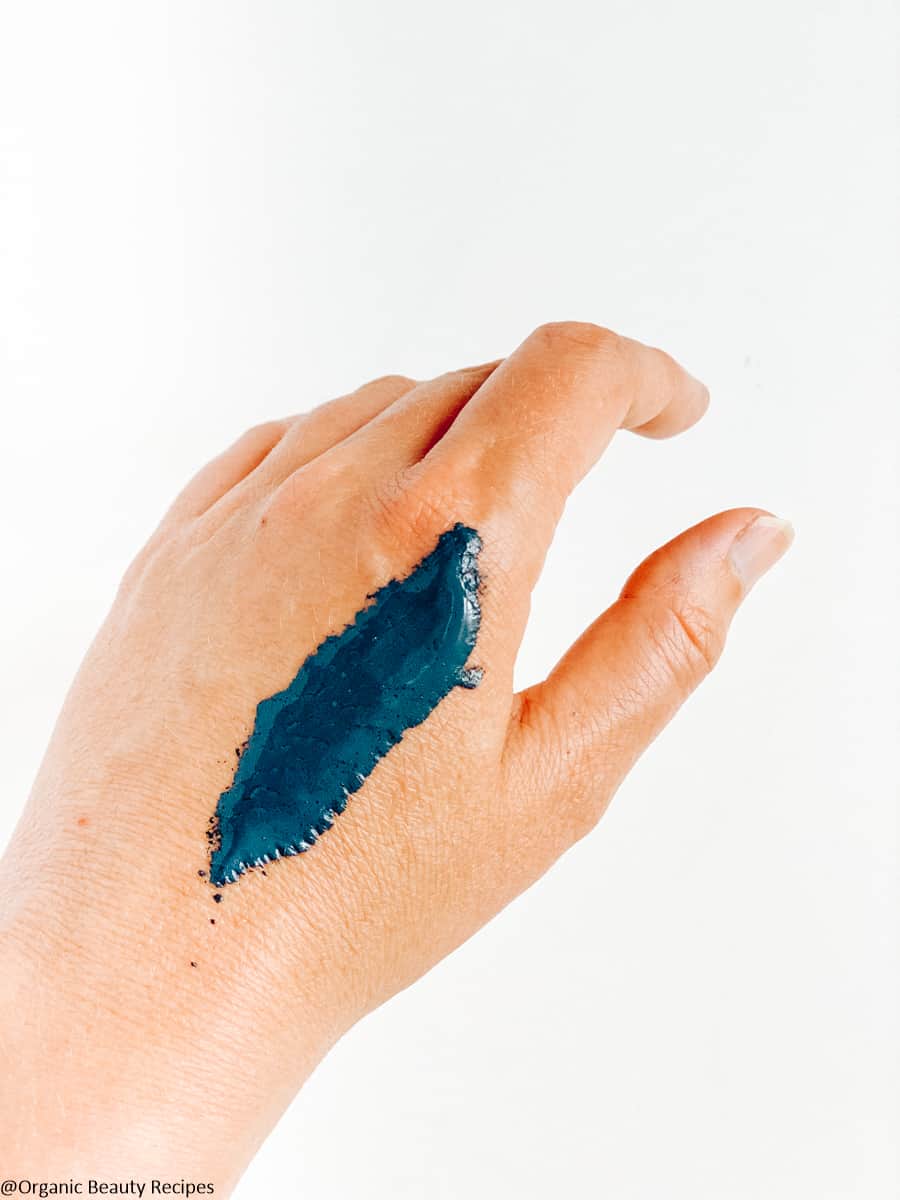
How to use this homemade charcoal face mask?
- Gently cleanse your face to remove any impurities.
- Apply a thin, even layer on dry skin, avoiding the eyes and the mouth. You can either use clean hands or a brush for this step.
- Leave on for about 10-15 minutes, or till the mask has dried.
- Rinse it off with warm water.
- Use once or twice a week.
A few important tips!
It can be a bit of a mess to handle charcoal! It’s a given that charcoal can stain light-colored fabrics. Just make sure that you’re wearing something that you’re not too fond of, in case it drops. Also, immediately clean your sink off with soap once you’ve applied the mask, as it tends to stain the sink, too.
A better option would be to use activated charcoal capsules, readily available in the market. It’ll definitely help minimize the mess.
Once the mask has dried off, it can be a bit difficult to remove. Gently washing it off with your hands, a few drops of gentle soap like castille soap or using a soft washcloth can help. Take note that a wash cloth’s texture can act as an exfoliant or scrub, so make sure to rub it gently on your skin. If you have sensitive skin, it would be best to stick to warm water.
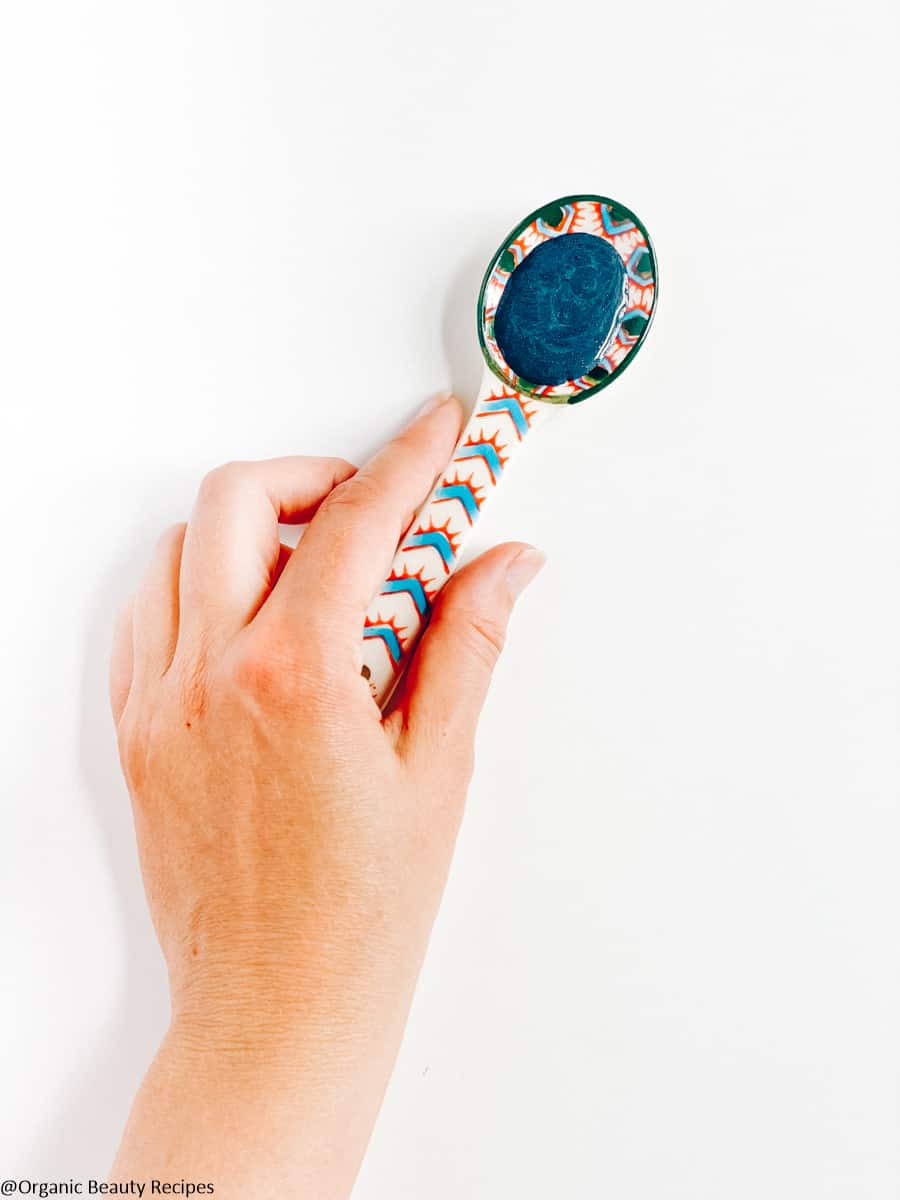
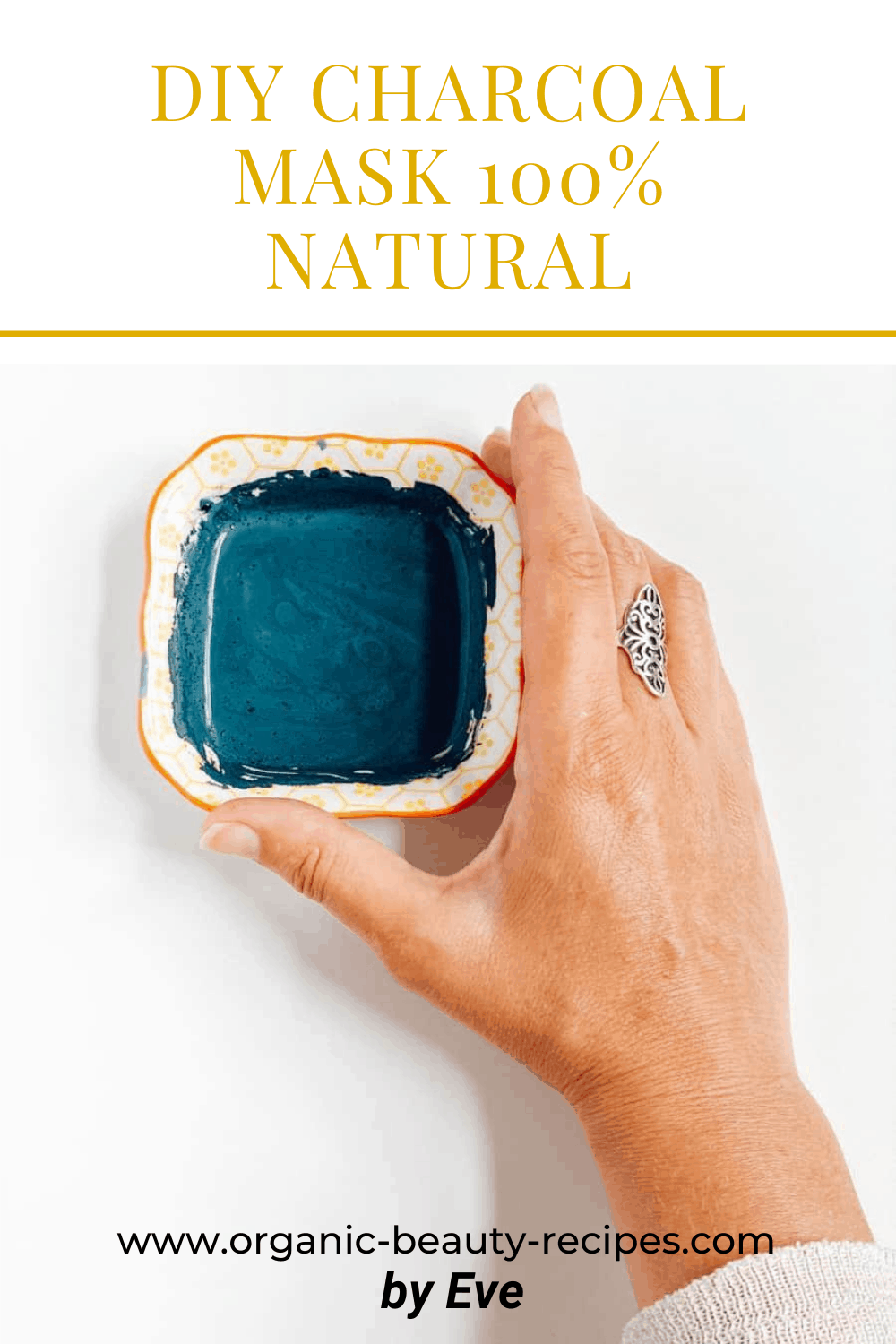
I hope you have enjoyed my recipe, please share the love and rate ***** in the comments below!

If we want to add preservative would phenoxyethanol at 0.5 ml go with it?
Author
I don’t recommend using preservatives as there are chemicals, best to make this mask fresh when you need it, it takes two minutes!
If I wanted to add a shelf life to this, would a Paraben free preservative work? And if yes, how much should be used?
Author
I would not use a preservative here as it is best to make it when you need it. You can combine the dry ingredients together ahead of time and just add the rosewater and oils just before use and mix.